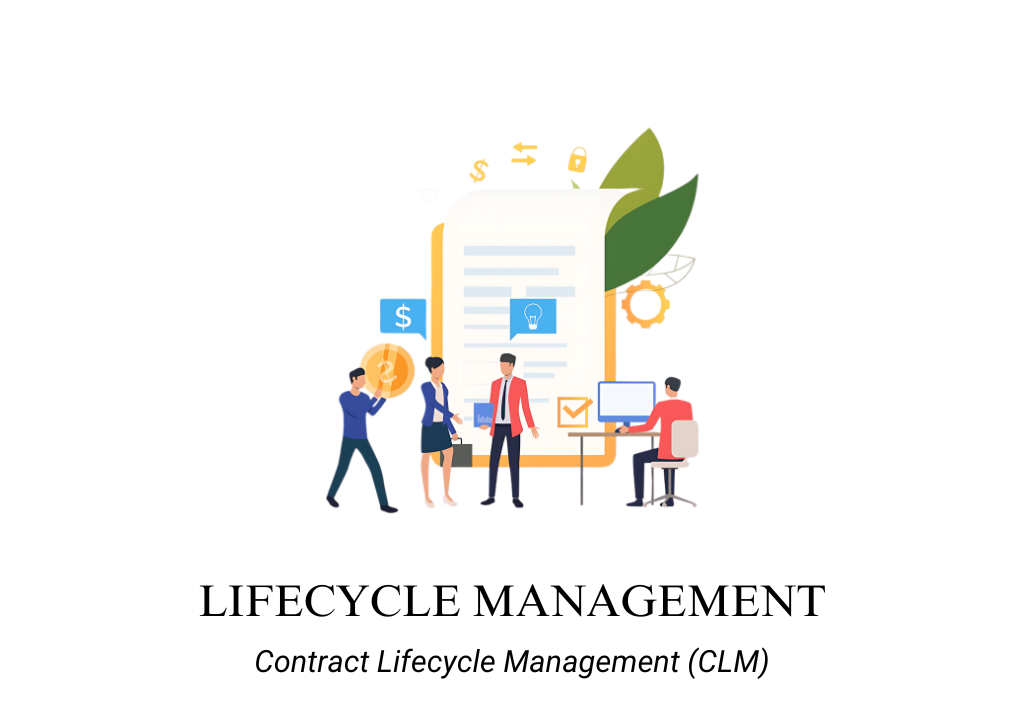Introduction
Lifecycle Management is a core functionality within Contract Lifecycle Management (CLM) tools that helps organizations manage contracts throughout their entire life cycle, from creation and negotiation to execution, monitoring, and renewal. This functionality ensures that contracts are systematically managed, tracked, and updated as needed, minimizing risks and optimizing contract performance. Effective lifecycle management allows organizations to maintain compliance, meet contractual obligations, and maximize the value of their agreements.
The Lifecycle Management functionality within a CLM tool includes various features that facilitate the smooth management of contracts through different stages. These features ensure that all contractual obligations are met on time, key milestones are tracked, and approvals are efficiently managed. Additionally, lifecycle management helps in identifying potential risks, avoiding missed deadlines, and maintaining good relationships with partners and vendors.
Features of Lifecycle Management
Approval Management
Definition: Approval management is a feature that automates and streamlines the process of obtaining necessary approvals for contracts. This feature ensures that all required stakeholders review and approve contracts according to predefined workflows and policies before they are finalized.
Purpose: The purpose of approval management is to ensure that contracts undergo thorough review and approval by all relevant parties before execution. It helps in maintaining compliance with internal policies and regulatory requirements, reducing the risk of errors or unauthorized agreements.
Use Case: A large enterprise uses the approval management feature in its CLM tool to ensure that all sales contracts are reviewed and approved by the legal, finance, and sales departments before being sent to clients. The tool automates the approval workflow, sending notifications to the relevant stakeholders and tracking the approval status, ensuring a streamlined and compliant approval process.
Benefits:
- Ensures that all contracts are reviewed and approved by the appropriate stakeholders before execution.
- Automates the approval process, reducing administrative burden and speeding up contract finalization.
- Enhances compliance by adhering to predefined approval workflows and policies.
- Provides a clear audit trail of all approvals, supporting accountability and transparency.
Milestone Tracking
Definition: Milestone tracking is a feature that allows organizations to set, monitor, and manage key milestones and deadlines associated with contracts. This feature ensures that all critical dates, such as delivery schedules, payment deadlines, and renewal dates, are tracked and met.
Purpose: The purpose of milestone tracking is to ensure that all contractual obligations are fulfilled on time and to prevent any lapses or missed deadlines that could lead to penalties, disputes, or missed opportunities. It helps in maintaining the smooth execution of contracts and optimizing performance.
Use Case: A construction company uses the milestone tracking feature in its CLM tool to monitor key dates in a project contract, such as payment schedules, inspection dates, and project completion deadlines. The tool automatically sends reminders to the relevant teams, ensuring that all milestones are met on time and the project stays on track.
Benefits:
- Helps ensure that all contractual milestones and deadlines are tracked and met.
- Reduces the risk of missed deadlines and associated penalties or disputes.
- Improves contract performance by ensuring timely fulfillment of obligations.
- Provides visibility into contract progress, helping in proactive management and decision-making.
Obligation Tracking
Definition: Obligation tracking is a feature that allows organizations to monitor and manage the specific obligations and commitments outlined in their contracts. This feature ensures that all parties involved in the contract adhere to the agreed-upon terms and conditions.
Purpose: The purpose of obligation tracking is to ensure that all contractual commitments are fulfilled as per the agreed terms, helping organizations maintain compliance, avoid breaches, and manage risks effectively. It provides a clear overview of all obligations, making it easier to track and manage them throughout the contract’s lifecycle.
Use Case: A logistics company uses the obligation tracking feature in its CLM tool to ensure that all service-level agreements (SLAs) with clients are met, such as delivery times and quality standards. The tool tracks these obligations and sends alerts to the relevant teams if any potential breaches or non-compliance issues are detected.
Benefits:
- Ensures that all contractual obligations are monitored and fulfilled according to the agreed terms.
- Helps avoid contract breaches and associated risks by providing proactive alerts and notifications.
- Enhances compliance management by keeping track of all commitments and their status.
- Improves accountability by providing a clear overview of who is responsible for fulfilling each obligation
Calendar Alerts
Definition: Calendar alerts are automated notifications generated by the CLM tool to remind stakeholders of upcoming deadlines, renewals, reviews, and other important contract-related events. These alerts are typically integrated with users’ calendars to provide timely reminders and avoid missed deadlines.
Purpose: The purpose of calendar alerts is to ensure that all stakeholders are aware of key dates and deadlines related to contracts, helping prevent lapses, missed renewals, or overdue tasks. This feature helps maintain contract performance and compliance by providing timely reminders and keeping all parties informed.
Use Case: A technology company uses the calendar alerts feature in its CLM tool to remind the legal team of upcoming contract renewal dates. The tool automatically sends alerts to the relevant stakeholders a month before the renewal date, ensuring that the renewal process is initiated on time and preventing unintentional lapses in service agreements.
Benefits:
- Ensures that all stakeholders are reminded of important contract-related dates and deadlines.
- Helps prevent missed renewals, overdue tasks, and other lapses that could impact contract performance.
- Improves efficiency by automating the notification process and reducing the need for manual tracking.
- Supports proactive contract management by keeping all parties informed of upcoming events and actions.
Guide to find best Contract Lifecycle Management (CLM) for lawyers
CHECK OUT CLM TOOLS ON DIRECTORY OR CLICK HERE


